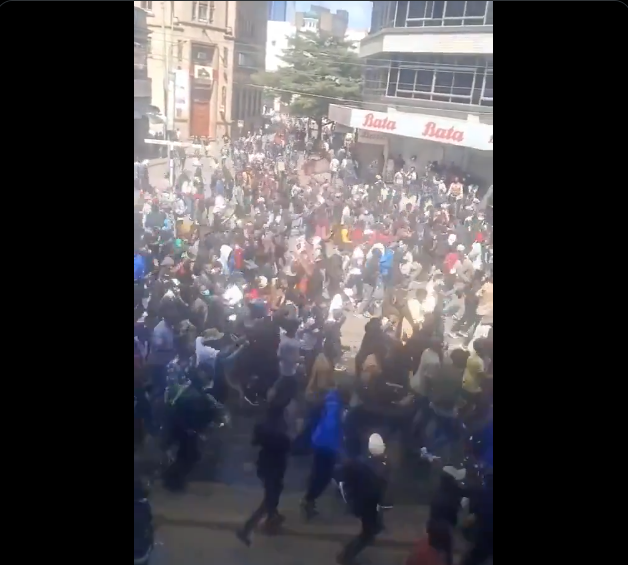Protests in Nairobi’s Central Business District (CBD) have grown in intensity following the arrest of activist Morara Kebaso.
Demonstrators, mostly peaceful, have been vocal about their demand for Morara’s release, accusing the authorities of unjustly targeting him due to his outspoken criticism of corruption and human rights violations.
Morara’s supporters argue that his arrest is politically motivated and reflects a broader crackdown on activists pushing for government transparency and social justice reforms.
As the protesters gathered outside the Nairobi Regional Police headquarters, tensions escalated when law enforcement fired tear gas to disperse the crowd.
Many onlookers were shocked by this aggressive approach, given the peaceful nature of the protest.
The use of force has sparked widespread debate on social media, with many calling for accountability from the police.
Human rights groups and civil society organizations have strongly condemned the police’s actions, labeling them as a violation of the public’s right to peaceful assembly(
The arrest of Morara Kebaso has also shed light on the increasing suppression of dissent in Kenya, where activists frequently face intimidation or arrest when challenging the government.
Many citizens feel that the state is trying to silence voices that seek justice and equality.
This protest, therefore, not only highlights the specific case of Morara but also raises broader concerns about freedom of speech and the shrinking space for civil activism in the country(
Public outcry over the handling of the protests continues to grow, with citizens urging for a peaceful resolution.
Calls for Morara’s immediate release remain strong, as do demands for police accountability regarding their use of tear gas on unarmed demonstrators.
Many are pushing for reforms that would ensure the protection of protest rights and prevent further escalation of force by law enforcement in future incidents


